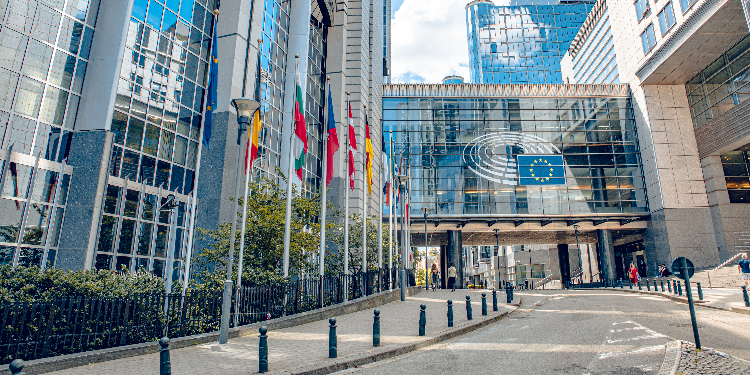
Expatriates are often not considered in regional elections and cannot express their views regarding local policies and initiatives in their host city and country. In Brussels, many of them cannot participate in elections and local political life, mostly because they do not have Belgian nationality.
Yet, a large number of these expats hold positions that contribute actively to life in their new city and its economy, pay different forms of taxes, etc. They firmly believe that it's high time for them to voice out their thoughts.
What is Brussels Voice?
Brussels Voice is the result of the following observation: “One in three Brussels residents is a citizen of another country and therefore cannot vote in regional elections.". From this was born a unique initiative taken by the State Secretary Pascal Smet aiming to answer the following problem: "How to integrate the international community into the local political scene?".
The project first started with the democratic participation phase called “Live here. Speak, hear", which was held between May and December 2021 and divided into several stages. The first phase of collecting ideas was carried out via a digital platform and brought out 250 ideas about life in Brussels. In the second step, residents of Brussels voted to validate the ideas selected before meeting during workshops taking the form of debates, brainstormings... These workshops resulted in 166 constructive solutions divided into 6 themes (the right to vote for international Brussels residents, mobility, accessibility of public services, public spaces, urban cleanliness and diversity) which now compose the Brussels Voice manifesto. University experts then studied the solutions proposed in the manifesto in order to transform them into realistic and concrete bills, giving shape to 22 bills that were submitted to the Brussels parliament at the end of April.
A strong initiative for the international community
In most countries, expatriates cannot get involved in local political life, but this type of initiative could remedy this problem. Of course, concrete results from the presentation of the manifesto to parliament are yet to come. Will expats get the right to vote in local elections? Will any of their ideas actually be implemented? Still, this initiative is the first to show real progress on the issue of local political life for expatriates and to give them the opportunity to voice out their opinions to the government. Besides, it paves the way for possibilities which could inspire other countries.
Bryn Watkins, a Brussels resident of British origin and a supporter of Brussels Voice, was one of the speakers who spoke in favor of the manifesto before parliament. He talks to us the importance of this initiative for the international community.
Can you tell us where the project has reached and what will be the next steps?
The International Brussels Manifesto and its 22 proposals were recently presented to parliamentarians and political decision-makers in the region during a major event in the Brussels Parliament: Brussels Voice ‘22.
The future is yet to be defined, but what is fore sure is that this is a great beginning for Brussels Voice! In the coming months, we will have to follow up to get a clear response to the manifesto from the regional authorities. We will also have to lay the foundations for a more permanent and stable consultation body for international Brussels residents. The State Secretary Pascal Smet and the regional association Commissoner Brussels, who have also carried the project so far, have already made commitments.
How important is this initiative for the international community in Brussels, and what is it expected to change?
I think we can see the concrete impacts for international Brussels residents at three levels. First, the manifesto contains proposals that could solve problems that specifically affect our community, especially when you arrive in Brussels for the first time. For example, there are complexities such as domiciliation in the municipality or guarantees to rent an apartment. Secondly, the creation and sustainability of a new democratic space for this community that cannot vote in regional elections will support mutual knowledge and recognition between international Brussels residents and regional authorities. It will help us feel more at home and ensure that regional policies take our interests and challenges into account. Finally, participatory mechanisms like Brussels Voice can be a path to democratic inclusion that will lead to the right to vote for international Brussels residents. In fact, during Brussels Voice '22, most parliamentarians present were already in favor of the right to vote for non-Belgians in the elections of the Brussels-Capital Region. So, we hope to see improvement in this regard in the years to come!
Are you aware of any similar initiatives in other countries? Do you think this concept can be exported to other countries? If yes, how?
Similar concepts exist, like the Parisian Council of Europeans, which results from a democratic participation project. Even within the Brussels region, there are advisory committees for foreigners in municipalities with a very international population, such as Etterbeek or Ixelles. So I think it is pretty feasible in other contexts. The Brussels region is hyper-cosmopolitan, and we are the headquarters of many European and international organizations, which attracts a lot of workers. Moreover, 1 out of 3 Brussels residents has a foreign nationality. Setting up an initiative like Brussels Voice may be more urgent and fruitful here, but the approach can be applied in any country with a significant international community.
How important is it for other countries to take similar initiatives?
On the one hand, it is a matter of inclusion and democratic justice. Anyone who resides somewhere should have the opportunity to express their views on the political process, especially long-term residents who contribute to the local society and economy. In Brussels, for example, the international sector generates more than 20% of the regional GDP. You don't really need to have Belgian nationality to be a citizen of Brussels. Brussels Voice is a participatory space that can fill such a type of democratic void.
On the other hand, it is also an opportunity for the region to finally hear the voices of its international residents. They are undoubtedly full of ideas for their city. In addition, the diverse origins of the participants provide sources of inspiration and points of comparison that are very helpful when looking for solutions. For Brussels Voice, it is real wealth, and I am happy that the region can benefit from the knowledge that international residents offer just by coming from another country.
To conclude, more groups could easily be set up to present similar projects in other countries. But what would be the major steps needed for such an initiative to thrive?
- Find a political personality to lead the project
- Establish a democratic participation system to bring together the needs and desires of the international community
- Mobilize the international community to participate in this major survey
- Match and synthesize the information collected to extract possible legislative proposals
- Transform these ideas into applicable bills
- Present these proposals to parliament
- Work on the application of validated proposals
In any case, Brussels Voice can be of great inspiration for expats and will undoubtedly facilitate the emergence of democratic groups which will be able to apply the tools and methods which will have proved their worth in Belgium.



















